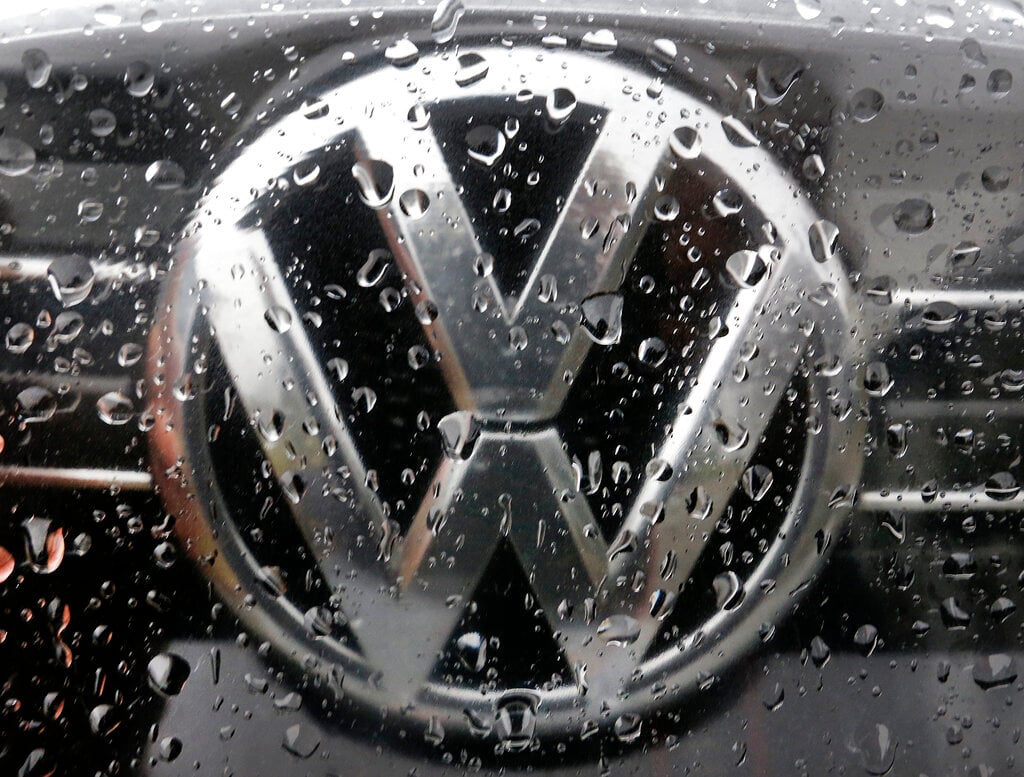FMT:
VW under fire over Xinjiang plant after China chief’s visit
Ralf Brandstaetter said he saw no sign of forced labour when he spent time there.

Volkswagen says its presence in Xinjiang is positive for the local population. (AP pic)
BERLIN: Volkswagen faced a barrage of criticism from campaigners and its works council today after the head of its Chinese business said he saw no sign of forced labour during a visit to the carmaker’s Xinjiang plant.
Activists and an international group of lawmakers as well as the head of sustainability and corporate governance at top 20 Volkswagen investor Deka Investment said verifying labour standards in the region was impossible.
“However much Mr Brandstaetter makes an effort, Volkswagen cannot be certain. That leads not only to reputational risk, but also legal issues, for example with supply chain laws,” Deka’s Ingo Speich said.
BERLIN: Volkswagen faced a barrage of criticism from campaigners and its works council today after the head of its Chinese business said he saw no sign of forced labour during a visit to the carmaker’s Xinjiang plant.
Activists and an international group of lawmakers as well as the head of sustainability and corporate governance at top 20 Volkswagen investor Deka Investment said verifying labour standards in the region was impossible.
“However much Mr Brandstaetter makes an effort, Volkswagen cannot be certain. That leads not only to reputational risk, but also legal issues, for example with supply chain laws,” Deka’s Ingo Speich said.
kt comments: No matter what the TRUTH is, Europeans under US instigation (and pressure) want bad news about Xinjiang, only bad news about so-called "oppression" there - that is the required US narrative and Europeans must obey
Rights groups have documented human rights abuses in Xinjiang since the 2000s, including mass forced labour in detention camps which the UN said could constitute crimes against humanity.
China has denied any abuses in Xinjiang.
Volkswagen’s China chief Ralf Brandstaetter spent 1.5 days on Feb 16 and Feb 17 touring the German group’s facility in the region, which is part of a joint venture with China’s SAIC, along with Volkswagen’s compliance and external relations chiefs in China.
Brandstaetter said he saw no signs of forced labour.
“I can talk to people and draw my conclusions. I can try and verify the facts (from joint venture partner SAIC), and that’s what I did. I didn’t find any contradictions,” he said, adding it was his first visit but not his last.
But Luke de Pulford of the Inter-Parliamentary Alliance on China, a group of legislators from thirty democratic countries including Britain, Germany, and the US, said human rights organisations felt labour standards could not be verified in the region because members of the Uyghur minority could not speak freely without fearing for their safety.
Campaigners at the World Uyghur Congress and researchers from Sheffield Hallam University, who authored a report on the auto industry supply chain’s links to Xinjiang, said the visit and conversations with workers were likely planned and coordinated with authorities.
Brandstaetter said he spoke at length to seven workers individually – including Han Chinese, Uyghurs and Kazakhs – some through a translator of Volkswagen’s choice and some in English, and held shorter discussions with other workers on his tour, which he said occurred without government supervision.
The plant, which previously assembled the Santana, has seen 65% staff cuts since the pandemic and only conducts final quality checks and installation of certain features before handing over vehicles to dealers for sale.
Planned output for this year is 10,000, a fraction of the 50,000 targeted when it first opened.
Reputational risk
Volkswagen says it has never found evidence of forced labour among its Xinjiang workforce and its presence is positive for the local population.
It denied maintaining the plant was a condition imposed by Beijing to keep producing across China.
The carmaker was initially praised for setting up the plant, chief lobbyist Thomas Steg said, comparing the goal of building infrastructure and boosting living conditions to Germany’s reunification.
But the atmosphere shifted after numerous deadly attacks in Xinjiang and elsewhere between 2009 to 2014 which the Chinese government blamed on militants from the region, leading to a “significantly more repressive approach”, he said.
However, with Volkswagen seeking new partners worldwide – partly to diversify its business from the Chinese market – breaking its agreement with SAIC to keep the plant until at least 2030 would make Volkswagen an unreliable partner and was out of the question, Steg said.
In a statement, a works council spokesman said the carmaker must make clear what value the plant has for the business and take an active stand against human rights violations in China.
“VW is stuck in a situation of reputational risk in Xinjiang,” Speich of Deka said.
"members of the Uyghur minority could not speak freely without fearing for their safety"
ReplyDeleteA repetitive human rights violations in China lie that has become a gold standard for these legislators from thirty democratic countries including Britain, Germany, and the US of masqueraded makeups!
VW needs China market. But China doesn't need VW cars - that's the reality check for its top operational/managerial executives. Would VW sacrifices its profitable China operation by bending to manufactured lies?
These legislators from thirty democratic countries including Britain, Germany, and the US WOULDN'T suffer bcoz they have free supporting funds from U-know-where! Meanwhile the company has to suffered profit diminishing & cut non performing operations else where. When the retrenched/unemployed workers revolt - only then would these mfers retreating back to their lair!